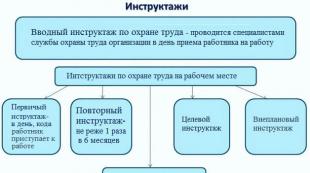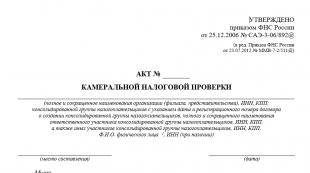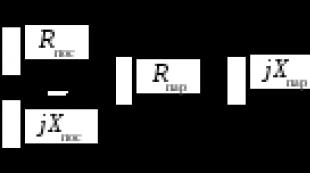representatives of the religious worldview. Features of the religious worldview
Historically, the first type of worldview was the mythological worldview, which was, in addition to everything, a special kind of knowledge, a syncretic kind, in which ideas and the world order are fragmented and not systematized. It was in the myth, in addition to man's ideas about himself, that the first religious ideas were also contained. Therefore, in some sources, the mythological and religious worldview is considered as one - religious-mythological. However, the specificity of the religious worldview is such that it is appropriate to separate these concepts, because the mythological and religious forms of the worldview have significant differences.
On the one hand, the ways of life presented in myths were closely connected with rituals and, of course, served as an object of faith and religious worship. In and myth are quite similar. But on the other hand, such similarity was manifested only at the earliest stages of coexistence, then the religious worldview takes shape in independent type consciousness and worldview, with their specific features and properties.
The main features of the religious worldview, which distinguish it from the mythological one, are that:
The religious worldview provides for consideration of the universe in its divided state into the natural and supernatural worlds;
Religion, as a form of worldview, as the main worldview structure, presupposes an attitude of faith, not knowledge;
The religious worldview implies the possibility of establishing contact between the two worlds, the natural and the supernatural, with the help of a specific cult system and rituals. A myth becomes a religion only when it is firmly included in the cult system, and, consequently, all mythological ideas, gradually being included in a cult, turn into dogma.
At this level, the formation of religious norms is already taking place, which, in turn, begin to act as regulators and regulators of social life and even consciousness.
The religious worldview acquires significant social functions, the main of which is to help the individual in overcoming life's troubles and rise to something high, eternal. This is also the practical significance of the religious worldview, the impact of which was very tangibly manifested not only in the consciousness of an individual person, but also had a huge impact on the course of world history.
If anthropomorphism is the main parameter of myth, then the religious worldview describes the surrounding world based on its already indicated division into two worlds - the natural and the supernatural. According to religious tradition, both of these worlds were created and controlled by the Lord God, who has the properties of omnipotence, omniscience. In religion, postulates are proclaimed that affirm the supremacy of God not only as a higher being, but also as a higher system of values. God is love. Therefore, the basis of the religious worldview is faith - a special type of concept and acceptance of the values of the religious worldview.
From the point of view of formal logic, everything divine is paradoxical. And from the point of view of religion itself, God, as a substance, requires a different approach from a person to mastering and accepting himself - with the help of faith.
This contradiction, in fact, is one of the most important paradoxes of the religious worldview. Its essence is that the understanding of God became an example of phenomenal idealization, which then only began to be applied in science as a methodological principle. The concept and acceptance of God made it possible for scientists to formulate many tasks and problems of society and man.
In this context, the consideration of God as the main content phenomenon of the religious worldview can even be presented as the most outstanding achievement of Reason.
Moreover, this is no longer a genetic principle, as in mythology, but an initial principle - a creative, creative, producing. To his characteristics include: 1 belief in the supernatural beginning - God is the absolute who acts as the Creator of the world; 2 transcendence of the absolute inaccessibility of the outside world of God given to a person in revelation; 3 consciousness of the individual I as the principle of the individual's moral responsibility before God for all actions and thoughts; 4 dogmatism the primacy of faith over knowledge strict adherence to the Scriptures the subordination of man to the will of God...
Share work on social networks
If this work does not suit you, there is a list of similar works at the bottom of the page. You can also use the search button
Page 17
Exercise 1
Religious type of worldview
Second historical type worldview, after mythology, was religion.Religious worldviewthis is a way of mastering reality through its doubling into natural, earthly, this-worldly and supernatural, heavenly, other-worldly.The religious worldview differs from the mythological one in the way of spiritual development of reality.. Mythological images and representations were multifunctional: they intertwined cognitive, artistic and evaluative assimilation of reality in an as yet undeveloped form, which created the prerequisite for the emergence of not only religion, but also various kinds literature and art.Religious images and representations perform only one function - evaluative-regulatory. One more a feature of religious images and ideas is that irrationality is hidden in them, which is subject to perception only by faith, and not by reason. The central place in any religious worldview is always occupied by the image or idea of God. God is considered here as the origin and fundamental principle of all that exists. Moreover, this is no longer a genetic principle, as in mythology, but an initial principle - creating, creating, producing. Religion is characterized by the recognition of the primacy of the spiritual over the physical, which is not in mythology. The historical significance of religion consisted in the fact that in both slave-owning and feudal societies it contributed to the formation and strengthening of new social relations, and the formation of strong centralized states.
So, religious worldview (religion) is a set of beliefs accompanied by an emotional experience of a mystical union with God.Its characteristic features include:
1) belief in the supernatural beginning - God, the absolute, who acts as the Creator of the world;
2) the transcendence of the absolute (inaccessibility, outside the world of God, given to man in revelation);
3) consciousness of the individual, I as the principle of the moral responsibility of the individual before God for all actions and thoughts;
4) dogmatism (primacy of faith over knowledge, strict adherence to Scripture, submission of a person to the will of God, obedience).
Task 2
|
Name/years life |
Main Artworks |
Introduced Concepts |
The subject and tasks of philosophy |
Doctrine of Being/Nature |
Theory of knowledge |
The doctrine of man and society |
Understanding God |
|
Socrates |
Socrates expressed his thoughts orally, in conversations with different persons; We have received information about the content of these conversations in the writings of his students, Plato and Xenophon (Memories of Socrates, Defense of Socrates at the trial, Feast, Domostroy), and only in an insignificant proportion in the writings of Aristotle. |
The idea of self-consciousness: "know thyself"; The idea of philosophical modesty: "I know that I know nothing"; The idea of the identity of knowledge and virtue: "virtue is knowledge." Socrates is one of the founders of dialectics, an idealist. |
Socrates, whose teaching marks a turn in philosophy from considering only inanimate nature and the world to considering nature as a whole, including the nature of man, and Man, including his Personality. |
Socrates opposed the study of nature. The philosopher believed that a person should not interfere with his mind in the creation of the gods, especially since the latter is so diverse and great that it can only be comprehended with the help of fortune-telling - for example, from the Delphic oracle. |
The theory of knowledge was the problem of the relationship between knowledge and opinion, truths and delusions. The main interest of the discussion was to elucidate the process by which an object is brought into a state of knowledge. |
With its method of analyzing concepts (maieutics, dialectics) and identified By ignoring the positive qualities of a person with his knowledge, he directed the attention of philosophers to the importance of the human personality. For the first time he approached the soul as a source of reason and morality. Knowing the difference between good and evil, a person begins to know himself. |
He considered the three principles of all things to be God, matter and ideas. Of God he said, "What He is I do not know; I know what He is not." Matter he defined as a substance that arises and annihilates; ideas - as an indecomposable substance, the thoughts of God. |
|
(1226-1274) |
« Sum of Theology ” and “Sum against the Gentiles” (“ The sum of philosophy"); Comments on: several books of the Bible; 12 treatises Aristotle ; "Sentences" by Peter Lombard; treatises Boe-tion; treatises Pseudo-Dionysius; the anonymous "Book of Causes"; poetic texts for worship, for example, the work "Ethics". |
It was Thomas Aquinas who introduced the concepts of faith, hope and love as the main theological some virtues. They are followed by prudence and justice. valor, courage and moderation, with which the rest of the virtues are connected. |
He was, in fact, the last theologian who paid attention to the psychological and philosophical problem tick. In his system, called Thomism, he sought not only a system- to typify the knowledge accumulated at that time by science, but also to reconcile theology with science, including the science of antiquity, primarily with the theory of Aristotle, whose follower he was. |
God the highest principle is being itself. Thomas Aquinas distinguishes between being (existence) and essence (only in God, being and essence coincide), but does not oppose them, but, following Aristotle, emphasizes their common root. Essences have independent existence in contrast to accidents (properties, qualities) that exist only due to substances. Hence the difference between substantial and accidental forms is derived. The first communicate to every thing a simple being, the second only qualities. Following Aristotle, distinguishing between the actual and the potential, Thomas Aquinas considers being as the first of the actual states. |
In the theory of knowledge, Thomas Aquinas says that universals really exist in the mind of God before things, and through things they arise in the mind of man. At the same time, the form in cognition does not mean what is known, but through what it is known, that is, the form is the beginning for the knowledge of a thing by an individual. Cognition is born when an image of the object under study is created in the human mind, produced both by the object and by the person. The cognizing subject, in some way, is likened to an object, but perceives not the entire existence of the object, but only that in it that can become like a person, be perceived by him. |
Man, the philosopher asserts in his work "The Sum of Theology", is the unity of the body and soul, as the form of the body; thus containing two worlds material and spiritual. |
Thomas argued - being the root cause of all things, God, at the same time, is the ultimate goal of their aspirations. The ultimate goal of good human actions is the attainment of bliss, which consists in the contemplation of God. All other goals are evaluated depending on their direction to the final goal, the evasion of which is evil. |
|
Spinoza Benedict (1632-1677) |
About God, Man and His Happiness, "A Treatise on the Improvement of the Mind and on the Way in which it is Best to Lead to the True Knowledge of Things" "Fundamentals of the philosophy of Descartes, proved by a geometric method", "Theological-Political Treatise", "Political Treatise" (not finished), "Ethics proven in geometrical orderand divided into five parts, "Hebrew Grammar". |
Spinoza introduced concept of free necessity. |
Spinoza saw the main task of his philosophy in substantiating ethical questions, in the development of the theory of individual behavior. ethical the orientation of Spinoza's philosophical interests is emphasized by himself, the main The philosopher's work is called Ethics. |
Spinoza considered nature in general and human nature in particular. but also impartially, as if they were geometrical problems, and tried to eliminate as far as possible the humanly understandable tendency to wishful thinking, for example, to assume the existence of goals or final causes in nature. |
The main problems for the Theory of Knowledge were the problems of the connection between the "I" and the external world, external and internal experience . T. p. acted not only as an analysis of philosophical and metaphysical knowledge, but also as a critical study of scientific knowledge. During this period, the problematic of T. p. occupied a central place in philosophy, being the starting point in the construction of philosophical systems (and sometimes coinciding with these systems) |
Man is a part of nature, therefore he is included in necessity, but he is a creature of a special kind, since in addition to extension he has the attribute of thinking, reason. Thus, human free will is limited, it essentially boils down to some degree reasonable behaviour. Freedom and necessity in man act as related concepts, conditioning each other. |
Spinoza's monism was pantheistic: he identified God with nature. |
|
Marx Karl (1818-1883) |
Marx K., Engels F., Works « Philosophical and economic manuscripts of 1844». "The Poverty of Philosophy" |
His work has shaped the philosophy dialectic and historical materialism, in economics theory surplus value, in politics theory class struggle. These directions became the basis of the communist and socialist movement and ideology, called " Marxism". |
K. Marx wrote: “Philosophers only in a different way explained world, but the point is to change his". Thus, for the first time in history, the task of philosophy was set and formulated in a new way. |
Being determines consciousness (c) K. Marx |
Theory of knowledge in Marxist-Leninist philosophy: rejecting all forms of epistemological idealism, the Marxist-Leninist Theory of Knowledge proceeds from a consistently materialistic solutionfundamental question of philosophy, that is, considers the cognizable material world, objective reality as existing outside and independent mo from consciousness. From the fundamental thesis about the material conditionality of cognition, it follows that the process of cognition is carried out not by some "pure" consciousness or self-consciousness that is torn off from a person, but real person through his consciousness. Dialectical materialismproceeds from the position that the world is knowable, and resolutely rejects the assertion that it is unknowable, that is, agnosticism. |
Marx talks about the essence of manas an "ensemble of social relations". |
Marx is far from the sweeping, complete, uncompromising denial of religion that his supporters and opponents often ascribe to him., and which was characteristic, in fact, for the French materialists of the 18th century and for the Russian "militant atheists" of the 20s. Of course, Marx, being a materialist, is an opponent of religion, but at the same time, from his statements it directly follows, among other things, the senselessness of the physical persecution of religious people and organized persecution of religion. Marx believes that religion can be defeated only by eliminating its social foundations, such specific relations between people as relations of alienation, alienation to each other, inconsistencies between a person and his own essence, which, according to Marx, give rise to religion. Marx's theoretical and practical struggle with religion is not directed against religion as such, but against social institutions and social phenomena that produce alienation, against the bourgeois state, bourgeois culture, bourgeois morality. “The criticism of heaven is thus transformed into a criticism of the earth, the criticism of religion into a criticism of law, the criticism of theology into a criticism of politics” |
|
Fedorov N.F. (1929-1903) |
"Philosophy of the common cause", Fedorov N. F. Collected works: in 4 vols. |
One of the foundersRussian cosmism». Fedorov laid the foundations worldview capable of openingways to understand the place and role man in the universe. Fedorov can rightfully be considered the forerunner and prophet of the noospheric worldview, the foundations of which are laid in the worksV. I. Vernadsky and P. Teilhard de Chardin. Emerged at the end of the 20th century movement of transhumanism "also considers Fedorov his forerunner |
He sees the tasks of philosophy in one thing: in ideal-forming creativity (however, for the author of the "Philosophy of the Common Cause" religion is in the first place here, active Christian philosophy only specifically explains the essence of the religious ideal, projects directions for the divine-human cause). |
Nature is imperfect, it is dominated by death and disease. The reason for the imperfection of nature the refusal of man to “own” (manage) the land("original sin"). Deprived of the guidance of Reason, Nature began to degrade. |
Fedorov decisively opposes his theory of knowledge to the ancient one."Know yourself". He who begins with the knowledge of himself already renounces kinship, sonship. "Know thyself means do not believe the fathers (i.e. tradition), do not trust the brothers (the witness of others), but believe only yourself, know only yourself ("I recognize means I exist") Fedorov counterposes this individualistic, egoistic theory of cognition with the principle of conciliarity, brotherhood, and sonship in cognition. |
Thought about man as a consciously creative being, as an agent of evolutionresponsible for all life on the planet, the idea of the earth as " common house”is important in the modern era, when more than ever before humanity questions about the attitude to nature, its resources, to the most imperfect mortal human nature, which gives rise to individual and social evil. The task of man is the regulation and salvation of everything natural from Death. |
N. F. Fedorov was a believerparticipated in the liturgical life of the Church. At the heart of his life position lay the commandment of St.Sergius of Radonezh: "Looking at the unity of the Holy Trinity, overcome the hated division of this world."In the works of Fedorov The Holy Trinity mentioned many timesit was in the Trinity that he saw the root of the future immortality of man |
Task 3
Dualism
Dualism (from Lat. dualis dual) a philosophical doctrine based on the recognition of equality and irreducibility to each other of the two main principles of the universe material and spiritual, physical and mental, body and soul. Dualism can be distinguished:
1) epistemological, emphasizing the opposite of two ways of considering being;
2) ontological, insisting on the heterogeneity and fundamental irreducibility of two substances;
3) anthropological, emphasizing the opposition of the soul and body.
The term was introduced by X. Wolf.The founder of dualism philosophy considered R. Descartes. He introduced into philosophy the idea of two qualitatively different and irreducible substances extended (res extensa) and thinking (res cogitans). Properties of a material substance corporality and extension. The thinking substance is the soul, spirit, consciousness.
In this idea of two qualitatively different substances in the new European culture, the idea of the ontological bifurcation of the universe, of the radical opposition of man and nature, sounded. The material substance, presented as a mechanism where the law of immutability of the momentum dominates, was considered as the opposite of the thinking substance, which is free and autonomous, capable of creatively carrying out intellectual activity.
Dualism in modern European philosophy expressed the active role of the thinking substance, its ability to create ideal schemes and models of the universe.. It was objectively necessary to reveal the possibilities of the rationalistic type of philosophizing and answered the tasks of the formation of science, which was based on the opposition of subject and object. The subject is determined by the ability to think, put forward and substantiate ideas and hypotheses. The object has its inherent properties and qualities that are "transparent" to the cognizing subject.
The ontological duality of the universe also gives rise to epistemological dualism, the opposition of subject and object. Occasionalists, B. Spinoza tried to overcome ontological dualism, considering spirit and matter as attributes of a single substance. G. Leibniz, moving from dualism to pluralism of monads, defined the material as a way of manifestation of the spiritual and introduced the principle of "pre-established harmony".
Philosophy in the 19th and 20th centuries dualism is epistemological rather than ontological. Consideration of the problems of correlation between empiricism and rational schemes, a priori and a posteriori, etc. all this had as its basis the epistemological dualism of thinking and being. At the same time, if pre-Kantian philosophy was dominated by the idea of the identity of the order and connection of ideas and things, then in the epistemological teaching of I. Kant, attention is drawn to the gap between thinking and things. He already realizes that the nature of things is not given in its immediacy to thinking, whose claims are only accessible to their phenomenal form. Cognition is considered as a constructive process of thinking, coupled with experience. Neo-Kantians (G. Rickert and others) introduce the dualism of "values" and "reality", A.O. Lovejoy, describing the "rebellion against dualism" in the history of philosophy, insists on the need for dualism in thinking and the nature of things.
AT modern philosophy(R. Rorty et al.) the idea of the need to overcome dualism as a tradition of new European thought is carried out.
Task 4
- Philosophical anthropology(from philosophy and anthropology ; philosophy of man) in a broad sense philosophical doctrine of nature and essence human ; in a narrow direction (school) in Western European philosophy (mainly German ) first half XX century coming from the ideas Dilthey's philosophy of life, Husserl's phenomenology and others, striving to create a holistic doctrine of man through the use and interpretation of data from various sciences psychology, biology, ethology, sociology, as well as religion, etc.
- The nature and essence of mana philosophical concept that denotes the essential characteristics of a person that distinguish him and are irreducible to all other forms and genera being , or its natural properties,in one way or another for all people.
- Being in the broadest sense Existence .
- The concept of being is the central philosophical concept. Genesis subject of study ontology . In a narrower sense, characteristic offundamental ontology M. Heidegger , the concept of "being" captures the aspect of existence existing , unlike his entities . If the essence is determined by the question: “What is the existent?”, then being is the question: “What does it mean that the existent is?”. The concept of being in the Russian philosophical language introduces Grigory Teplov in 1751 as a translation of the Latin term "ens"
- Philosophy of life (German: Lebensphilosophie) irrationalisticcurrent in European philosophy, which received a predominant development in Germany in the late XIX early XX centuries.
- Wilhelm Dilthey(German Wilhelm Dilthey; November 19, 1833, Biebrich am Rhein October 1, 1911, Seys) German cultural historian and idealist philosopher, representative of the philosophy of life, literary critic who first introduced the concept of the so-called sciences of the spirit (German) Geisteswissenschaft), which had a huge impact both on modern historical sciences in Germany (Rikkert, Windelband, Spranger and others), and literary criticism ( Unger, Walzel (German: Oskar Walzel), Gundolf (German: Friedrich Gundolf) and others).
- Phenomenology (German) Phänomenologie the doctrine of phenomena ) direction to philosophy of the 20th century , which defined its task as an unconditional description experience of knowing consciousness and highlighting its essential features.
- Edmund Husserl (German: Edmund Husserl; April 8, 1859, Prosnitz, Moravia (Austria) April 26, 1938, Freiburg) German philosopher, founder of phenomenology.
- Psychology (from other Greek ψυχή "soul"; λόγος "knowledge") science , studying structures and processes inaccessible to external observation, in order to explain human and animal behavior , as well as the behavior of individuals, groups and collectives. Unites in itself humanitarian and natural scienceapproaches. Includes fundamental psychology, revealing the facts, mechanisms and laws of mental activity,applied psychologywhich studies, based on the data of fundamental psychology, mental phenomena in natural conditions, and practical psychology, which deals with the application of psychological knowledge in practice
- Biology (Greek βιολογία; from other Greek. βίος life + λόγος teaching, science ) system of sciences, the objects of study of which are living beings and their interaction withenvironment. Biology studies all aspects life in particular the structure, functioning, growth, origin, evolution and distribution of living organisms Earth . Classifies and describes living beings, their origin species , interaction with each other and withenvironment.
- Ethology field discipline zoology studying genetically determined behavior (instincts) ) animals, including of people . The term was introduced in 1859 by a French zoologistIsidore Geoffroy Saint-Hilaire. Closely associated with zoology, evolutionary biology, physiology , genetics , comparative psychology, zoopsychology and is also an integral partcognitive ethology. Founder of ethology, laureateNobel Prize Konrad Lorenz , called ethology "the morphology of animal behavior."
- Konrad Zacharias Lorenz(German Konrad Zacharias Lorenz; November 7, 1903, Vienna February 27, 1989, Vienna) outstanding Austrian scientist, one of the founders ethology Animal Behavioral Sciences, laureateNobel Prize in Physiology or Medicine(1973, together with Carl von Frisch and Nicholas Tinbergen).
- Sociology (from lat. societas society + other Greek λόγος science) is the science of society, systems , composing it,patternsits functioning and development, social institutions, relationships and communities . Sociology studies society, revealing the internal mechanisms of its structure and dynamics; formation, functioning and development of its structures (structural elements: social communities, institutions, organizations and groups); laws of social actions and mass behavior of people, as well as the relationship between the individual and society.
- Religion a special form of awareness of the world, due to faith in supernatural, which includes a set moral norms and types of behavior, rites , cult actions and bringing people together in organizations ( church, religious community.
- Max Scheler (German: Max Scheler; August 22, 1874, Munich, Kingdom of Bavaria, German Empire May 19, 1928 Frankfurt am Main, German Empire) German philosopher and sociologist, one of the founders ofphilosophical anthropology
- Helmut Plesner (German: Helmuth Plessner, September 4, 1892, Wiesbaden June 12, 1985, Göttingen) German philosopher and sociologist , one of the foundersphilosophical anthropology.
- Arnold Gehlen (German: Arnold Gehlen, January 29, 1904, Leipzig January 30, 1976, Hamburg) German philosopher and sociologist , one of the foundersphilosophical anthropology, representative technocratic conservatism.
- Papoul Ludwig Landsberg(German: Landsberg, December 3, 1901, Bonn April 2, 1944, Oranienburg) German philosopher, representative philosophical anthropology and personalism.
- Karl Loewit (German: Karl Löwith; January 9, 1897, Munich May 26, 1973, Heidelberg ) German philosopher.
- Hans Lipps (German Lipps, November 22, 1889, Pirna October 10, 1941, Russia) German philosopher. From 1911 he was a student of Husserl. In 1912 defended his dissertation "On the structural changes of plants in a modified environment." Died in RussiaWorld War II.
- Otto Friedrich Bolnow(German: Otto Friedrich Bollnow, March 14, 1903, Stettin February 7, 1991, Tübingen ) German philosopher and teacher, continuer of traditions philosophy of life. Works on anthropology, ethics , philosophy of life,existential philosophy, hermeneutics.
Task 5
Pragmatism
One of the directions of philosophy in foreign literature can be called pragmatism , which took shape in the 70s of the 20th century, thanks to the activities of three scientists: Pierce - "Consolidation of beliefs," How to make our ideas clear "; James - "The pattern of faith from the will", "Pragmatism is the beginning of psychology"; Dune - "Principles of Psychology", "Experience and Nature", "Psychology and Pedagogy of Thinking".Today, pragmatism in the United States is the dominant philosophical current. Pragmatism subjugated the philosophy of education, became the semi-official philosophy of the American way of life..
The Americans compared the formation of the concept of pragmatism with the "Capernican coup", a complete reconstruction of philosophy, believing that pragmatism is the ideal key to solving the eternal problems of philosophy.
The central task of pragmatism- lower abstract philosophical concepts to the ground and look for the meaning of philosophical problems in their relation to human life. It is those philosophical problems that are significant that are directly related to human life, so they must be stated and considered in terms of human action and its success.
According to them, a person acts in an irrational world. Attempts to achieve objective truth are meaningless, therefore, any concept, any concept, any theory and social teachings, as well as moral requirements, should be approached instrumentally, from the standpoint of the expediency of specific things. What brings success is true general concept this theory.
a). "The Doubt Theory of Faith"
b). "Theory of Meaning"
" Belief Doubt Theory", according to her - this does not reflect reality in the human mind, but the development of innate life instincts, i.e. a biopsychological function aimed at developing the habit of responding to environmental conditions - this habit constitutes belief. And the achievement of stable belief is the only goal of thinking. The movement is not from ignorance to knowledge, but from doubt to firm opinion and stable belief, which is the main function of knowing thinking.Steady belief is achieved in 3 ways and methods: persistence, which involves adhering to a once accepted view.The method of authority - relying on widespread authoritative judgments and views.The method of apriorism - general beliefs, justified by impersonal pre-experimental principles.
The subjectivism of beliefs is allowed by the adoption of Shpotera, and thus unity and universality are ensured.
" Belief Doubt Theory"justifies the rejection of understanding cognitive activity as essentially reflective activity and aimed at achieving true knowledge of objective reality. Cognitive activity is considered by Peirce as a non-cognitive activity that is aimed at providing intellectual comfort. This theory denies that a person has a cognitive interest. Thus. the achievement of faith entails the passivity of the mind, but ensures the activity of the body, because faith, from the point of view of the pragmatist, is a habit of acting.
"Theory of Meaning "- Pierce solved the problem of establishing the meaning of concepts not in the dictionary sense, but in the practical actions of a person, i.e. to understand the idea of a term and make it clear, therefore Pierce correlates the concept with a person. Without this, one cannot speak of "meaning" in meaning is what the content of the concept means for a person as a community of people, i.e. pragmatism has carried out a pragmatic interpretation of concepts with practical consequences of actions.
The concept of truth pierce connects and identifies with success. Truth, in his opinion, is future utility for a purpose. Truth is what we believe, or a firm belief. And in order to be stable, belief must be universal, i.e. be shared by all who are interested in it.
James - puts a person at the center of philosophy, and the significance of all philosophical problems is evaluated by the role that they can play in the life of an individual.
The philosopher should not be interested in the structure of the world, but what significance it has for a person, which follows from his knowledge for him. We incline towards one or another philosophical trend, not because of its truth, but because it best suits our frame of mind, emotional state, our interests. Truth, according to James, is usefulness or success, and proniaism is the method of settling disputes. Human consciousness is a selective activity aimed at selecting what meets the goals of the individual, their feelings, moods and emotions.
According to James, it is necessary to give preference not to the arguments of reason, but to believe in any hypothesis and take risks. At the center of his concept is the will to faith: on the one hand, faith sets one's convictions, in the perfect irrationality and unknowability of the surrounding world, on the other hand, it helps to live comfortably in the chaos of unrelated events, a pluralistic universe. The will to believe determines a person's success in theory and practice. Because the objects of faith are the essence, the only realities that can be spoken of, but they become objects only when, in this or that faith, they are subjected to stresses or efforts of the will in experience. Experience is characterized as a certain set of sensations, emotions, experiences. In experience, we do not deal with reality, therefore the concept of ideas, theories created in the process of experience are devoid of objective content and must be evaluated pragmatically, i.e. from the point of view of practical consequences, therefore the truth of concepts and ideas lies in their usefulness.
He systematized and turned into a universal doctrine that embraced pedagogy, ethics, sociology, history - that was Dewey. He did this on the basis of science and democracy. He developed the logic of science, the theory of scientific inquiry, and applied the scientific method he created to human problems in all areas of social life. Criticizing the philosophy that existed before him, Dewey insisted that the only way to solve social, practical and theoretical problems is in the method of reason and science, which, in relation to nature and technology, has already given brilliant results known to all. He considered the scientific method not as a method of cognition, but as a method that ensures the successful behavior of a person in the world, objective knowledge, which is impossible. scientific method Dewey does not recognize objective reality as a subject of study. He argues that it arises in the process of cognition, therefore, knowledge about the subject is regarded as the creation of reality. From his point of view, to be the object of scientific research. Scientific research puts a person in problematic uncertain situations, the task of philosophy is to transform an uncertain situation into a definite, unsolved problem into a solved one. For this purpose, concepts, ideas, laws are created that have instrumental significance. Science is a set of tools that are used in certain circumstances, so some scientists called Dewey's pragmatism instrumentalism. It includes 5 stages of research:
1. feelings of embarrassment
2. awareness of the problem
3. marking her solution (proposing her hypothesis)
4. development of the idea, its solution to imperial consequences
5. observation and experiment that are carried out for the sake of solving a problem
Dewey conclusion: the true solution is the one that most ensures the success of human actions. Dewey understands truth like other representatives of pragmatism, Pierce and James.
Religion is a form of worldview based on the belief in the presence of fantastic, supernatural forces that affect human life and the world around us. With a religious worldview, a person is characterized by a sensual, figurative-emotional (rather than rational) form of perception of the surrounding reality. Religion illuminates the same issues as myth.
Character traits religions:
̶ the predominance of sensory perception of the world;
̶ "faith" is elevated to a principle;
̶ system of dogmas;
̶ the mind occupies a subordinate position (the creed of religion: "do not think, but believe").
Already on early stage mythology was not the only ideological form in human history. On the basis of the fantastic beliefs and rituals present in the myths, religion (more precisely, religion) is born, which also acts as one of the socio-historical types of worldview coexisting with philosophy for many centuries. Representing a specific form of reflection of reality, religion still remains a significant socially organized and organizing force in the world.
Religion cannot be understood in a simplified or vulgar way, for example, as a system of "ignorant" ideas about the world and man. Religion is a complex phenomenon of spiritual culture. Within the framework of religious consciousness, moral and ethical ideas and ideals arose that helped the development of human spirituality and contributed to the formation of universal human values. So, for example, the unshakable basis of Christian morality is work, which is understood as cooperation with God, and whoever does not work is not a Christian. Religion has made a huge contribution to the process of consciousness of the idea of the unity of the human race and the enduring significance of high moral standards in people's lives, which is relevant at all times.
Religion- this is the worldview and behavior of an individual, group, community, which are determined by the belief in the existence of a certain Higher Beginning. This is a belief in the existence of one or another variety of supernatural forces or in their dominant role in the universe and people's lives.
religious consciousness- this is the recognition of the real presence in human life, in the existence of all people and the entire Universe of a certain Higher Beginning, which directs and makes meaningful both the existence of the Universe and the existence of man.
It is necessary to emphasize once again that the mode of existence of religious consciousness is faith (more on faith will be discussed in the topic “Philosophical image of knowledge”).
The specificity of religion is due to the fact that its main element is cult system, i.e. a system of ritual actions aimed at establishing certain relationships with the supernatural. And therefore, every myth becomes religious to the extent that it is included in the cult system, acting as its content side.
Worldview constructions, being included in the cult system, acquire the character creeds. And this gives the worldview a special spiritual and practical character. Worldview constructions become the basis for formal regulation and regulation, streamlining and preserving mores, customs, and traditions. With the help of rituals, religion cultivates human feelings of love, kindness, tolerance, compassion, mercy, duty, justice, etc., giving them a special value, associating their presence with the sacred, the supernatural.
The main function of religion is to help a person overcome the historically changeable, transient, relative aspects of his being and to elevate a person to something absolute, eternal. In the spiritual and moral sphere, this is manifested in giving the norms, values and ideals an absolute, unchanging character, independent of the conjuncture of the spatio-temporal coordinates of human existence, social institutions, etc. Thus, religion gives meaning and knowledge, and hence stability to human existence, helps him overcome everyday difficulties.
It must be remembered that the mythological-religious worldview was spiritual and practical character. His worldview constructions enter into social and individual interaction in the form images and symbols.
The religious worldview was originally formed on the basis of the mythological, including in his picture of the world the image of a cultural hero as an intermediary between gods and people, endowed with both divine and human nature, natural and supernatural abilities.
However, religion, unlike mythology, draws a precise line between the natural and the supernatural, endowing the first with only a material essence, the second with only a spiritual one. Therefore, in a period when mythological and religious ideas were combined in a religious-mythological worldview, paganism was a compromise of their coexistence - the deification of the natural elements and various aspects of human activity (gods of crafts, gods of agriculture) and human relations (gods of love, gods of war). From mythological beliefs in paganism, there were two sides of being of every thing, every creature, every natural phenomenon - obvious and hidden for people, there were numerous spirits that enliven the world in which a person lives (spirits are the patrons of the family, spirits are the guardians of the forest). But paganism included the idea of the autonomy of the gods from their functions, of the separation of the gods from the forces that they control (for example, the god of thunder is not part or the secret side of thunder and lightning, the shaking of heaven is the wrath of God, and not his incarnation).
With the development of religious beliefs, the religious worldview was freed from many features of the mythological worldview.
Gone are the features of the mythological picture of the world, such as:
- the absence of a clear sequence of events in myths, their timeless, non-historical nature;
- zoomorphism, or bestiality of the mythological gods, their spontaneous, not amenable to human logic actions;
- the secondary role of man in myths, the uncertainty of his position in reality.
Holistic religious worldviews were formed when monotheistic creeds were formed, when systems of dogmas, or indisputable truths of monotheism, appeared, accepting which a person joins God, lives according to his commandments and measures his thoughts and actions in the value orientations of holiness - sinfulness.
Religion is a belief in the supernatural, the recognition of higher extraterrestrial and supra-social forces that create and maintain this world and beyond. Belief in the supernatural is accompanied by an emotional experience, a sense of human involvement in a deity hidden from the uninitiated, a deity that can be manifested in miracles and visions, in images, symbols, signs and revelations, through which the deity makes itself known to the initiate. Belief in the supernatural is formed into a special cult and a special ritual, which prescribe special actions with the help of which a person comes to faith and is established in it.
In the religious worldview, being and consciousness are identical, these concepts define the consubstantial, eternal and infinite God, in relation to which nature and man, produced from him, are secondary, and therefore temporary, finite.
Society is presented as a spontaneous gathering of people, since it is not endowed with its own special soul (in the scientific worldview called social consciousness), that which a person is endowed with. Man is weak, things produced by him are perishable, deeds are fleeting, worldly thoughts are futile. The community of people is the vanity of the earthly sojourn of a person who has deviated from the commandments given from above.
In the vertical picture of the world, God is a man public relations are perceived as purely personal, individual actions of people, projected on the great plan of the Creator. The man in this picture is not the crown of the universe, but a grain of sand in the whirlwind of heavenly predestination.
In religious consciousness, as well as in mythology, the spiritual and practical development of the world is carried out through its bifurcation into the sacred (sacred) and everyday, "earthly" (profane). However, the elaboration of the ideological content of the religious system of views rises to a qualitatively different level. The symbolism of the myth is replaced by a complex, sometimes sophisticated system of images and meanings, in which theoretical, conceptual constructions begin to play a significant role. The most important principle of building world religions is monotheism, the recognition of a single god. The second qualitatively new feature is the deep spiritual and ethical loading of the religious worldview. Religion, such as Christianity, gives a fundamentally new interpretation of the nature of man as a being, on the one hand, "sinful", mired in evil, on the other hand, created in the image and likeness of the Creator.
The formation of religious consciousness falls on the period of decomposition of the tribal system. In the era of early Christianity, rational proportion, the harmony of the cosmos of the ancient Greeks is replaced by a picture of the world full of horrors and apocalyptic visions, by the perception of social reality that developed among the enslaved peoples of the Roman Empire, among runaway slaves, among the destitute, disenfranchised, hiding in the caves and deserts of the Front and Asia Minor Semitic tribes. In conditions of general exclusion, many people were practically deprived of everything - shelter, property, family, and a runaway slave could not even consider his own body as belonging to him. It was during this period, a turning point and a tragic moment in history, that one of the greatest ideological insights entered the culture: all people, regardless of social status and ethnicity, are equal before the Almighty, a person is the bearer of the greatest, hitherto unclaimed wealth - an immortal soul, a source of moral strength, spiritual fortitude, fraternal solidarity, selfless love and mercy. A new cosmos, unknown to the people of the previous era, opened up - the cosmos of the human soul, the inner support of a destitute and humiliated human being.
Topic 2. Religion as a sociocultural phenomenon
The concept of religion. The specificity of the religious worldview.
The structure of religion.
Religious consciousness. Faith. religious experience.
Religious activity.
Religious organizations and institutions. Church, sect.
The main functions of religion. The role of religion in modern society.
The concept of religion. The specificity of the religious worldview
The religious worldview historically originates in the depths of mythological consciousness and initially bears the imprint of polytheism and pantheism, which are consistently overcome in the process of the formation of world religions. They are characterized by pronounced monotheism (monotheism) (for example, Christianity, Islam) or a tendency towards a monotheistic understanding of the universe (Hinduism, Buddhism, Confucianism). In the process of rationalization and value debunking of myths, faith in tribal gods is increasingly giving way to faith in the necessity that dominates all - Fate, Doom. This monistic trend in the evolution of mythology ultimately leads to the allocation of a dominant figure in the pantheon of mythical creatures, the most important functions of which are cosmogonic (creation of the world) and ontological (maintenance of its existence). Thus, a set of ideological and worldview prerequisites for the formation of a religious dogma is gradually taking shape.
Religion is a type of worldview based on faith in a single, absolute and sacred principle of the world - God, whose essence is inaccessible to human understanding.
As the basic relationship of a person with the universe, she establishes a supernatural, irrational relationship of a person with God, based on love for him, boundless faith and reverence. The postulate of the uniqueness and absoluteness of the deity entails, along with monotheism, the next feature of religion - theocentrism. As a result, such a picture of the world is emerging, in which the whole system of ideas about the status of man and society in the universe is radically changing. In the religious picture of the world, a single and absolute center of power appears, the source of all diversity, the father and almighty, whose power over the created cosmos is immeasurable and cannot be limited by anything. Due to the essential difference between God and the world, God, as the transcendent Absolute, is infinitely higher than natural reality, does not merge with it, although he permeates everything on earth with his radiant energy. The world as “created” (created by God) is infinitely lower than the creator, both in terms of value and substance. He is imperfect, relative, secondary, finite in time and space, and completely dependent on his will.
These characteristics of the relationship between God and the world extend to the understanding of man's connection with God. Created in the image and likeness of God, man is radically different from other beings and therefore occupies a special position in the cosmos. His purpose lies in the consistent and difficult spiritualization of the flesh, in overcoming the depravity of his being, and through this - of any created nature. That is why man was destined by God to dominate the earth and control the natural world. However, being entirely in the power of the Absolute, a person considers his relationship with him as the most significant, because it is on them that the fate of his immortal soul depends. At the same time, a number of value oppositions are built. Man is weak and limited, his possibilities are relative, God is absolute, omnipotent and limitless, he personifies the highest good, truth, justice and love. Man is finite, mortal, limited by space and time, while the deity is not just immortal, but, by virtue of its absoluteness, is the true source of life and eternity. Man is sinful, his soul is burdened with the weakness of the flesh, and God is the absolute foundation of morality and the personification of perfection.
The specificity of the religious worldview is also manifested in the fact that beliefs play a special role in its structure. Being a pronounced form of spiritual and practical assimilation of reality, the religious worldview assumes as an obligatory rule the strict correspondence of a person's life to the content of his religious ideas and ideas. Faith as the basis of religion presupposes the correspondence of thoughts to actions and deeds, the correspondence of the cult to dogmas. Therefore, a religious worldview inevitably gives rise to a religious way of life and strict regulation of cult practice.
Finally, religion, being, like myth, an authoritarian, dogmatic, traditionalist form of culture, nevertheless contains, in contrast to mythology, a significant element of rationality. This has a lot in common with philosophy. The rationality of the religious worldview is already manifested in the nature of ideas about God, which is only metaphorically likened to an absolute personality and, due to this, acquires anthropomorphic features. Within the framework of the theological tradition, God is recognized as an unknowable and inaccessible entity for human perception, devoid of any sensory-empirical content.
Being an absolutely transcendent principle, it is conceived outside the sensory-empirical context of reality, outside space and time. The very division of the universe into the empirical and transcendent world, beyond cognition, inevitably turns God (when trying to think of him) into some kind of abstract first principle of explaining reality, a philosophical category. Religion completely overcomes the syncretism of mythological thinking and its characteristic pantheism, which assumes that the divine and the natural are mutually dissolved in each other. Due to these features of the religious worldview, it historically developed in parallel with the philosophical one, in close interaction and interpenetration of these two forms of spiritual culture.
The Structure of Religion
The main elements of religion are:
1) Belief in God (or gods) is the main feature of religion. AT different religions- different gods, but there is something in common in the ideas about them: God is a person, a subject, a being; God is a rational being, immortal, possessing supernatural powers incomprehensible to humans. The similarity between man and God is explained within the framework of religion by the fact that God created man "in his own image and likeness."
2) Emotional attitude towards God. Faith in God is not just a rational belief in his existence, but a religious feeling. The believer relates to God with love, fear, hope, feelings of guilt and remorse, and this emotional attitude with God forms a special kind of "spiritual experience".
3) Religious cult. Worship of God is expressed in rites and rituals dedicated to him. An important side of the religious cult is symbolism. Cult objects, actions, gestures - this is a symbolic language in which a person's dialogue with God takes place. As a result of religious activity, the religious needs of believers are satisfied, religious consciousness is revived. There is a real communication of believers with each other, the religious group is united.
4) Religious organizations. There are three types of such associations. The church is a relatively broad association, belonging to which is determined by tradition, the followers are mostly anonymous, the believers are divided into clergy and laity, usually the church cooperates with the state. The sect proclaims opposition to traditional churches, preaches isolationism, chosenness, strictly controls membership, leadership in the sect is charismatic. A denomination is something between a church and a sect: the preaching of the chosenness of members is combined with the possibility of salvation for all. From a sect, a denomination is distinguished by active participation in secular life, effective economic activity, and the desire to develop into a church.









